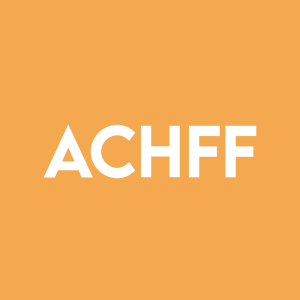Arch Biopartners’ Cilastatin Drug Candidate to Participate in the PONTIAC Phase II Trial Targeting Acute Kidney Injury Caused by Drug Toxins
Rhea-AI Summary
Arch Biopartners Inc. (TSX Venture: ARCH, OTCQB: ACHFF) announced that its drug candidate cilastatin will participate in the PONTIAC Phase II trial, targeting acute kidney injury (AKI) caused by drug toxins. The 900-patient trial, funded by $1.9 million in grants, will evaluate cilastatin's efficacy in preventing AKI from antibiotics, chemotherapeutics, and radiographic contrast. Arch is repurposing cilastatin, a dipeptidase-1 inhibitor, as an AKI treatment, leveraging its unique ability to block toxin uptake in kidney tissue. This trial complements Arch's ongoing Phase II study of LSALT peptide for cardiac surgery-associated AKI. Together, these trials target about 50% of hospital AKI cases, for which no treatment currently exists.
Positive
- Cilastatin selected for PONTIAC Phase II trial, targeting a significant unmet medical need in AKI prevention
- Trial fully funded with $1.9 million in grants, reducing financial burden on Arch Biopartners
- Potential to address up to 50% of hospital AKI cases when combined with ongoing LSALT peptide trial
- Arch holds method-of-use patents for cilastatin as AKI treatment in North America and Europe
Negative
- Clinical Trial Application for PONTIAC study not yet submitted to Health Canada
- Cilastatin has no commercial history as a stand-alone drug product
- Potential competition from Arch's own LSALT peptide in AKI treatment market
News Market Reaction – ACHFF
On the day this news was published, ACHFF gained 2.73%, reflecting a moderate positive market reaction.
Data tracked by StockTitan Argus on the day of publication.
- Arch is repurposing cilastatin, a dipeptidase-1 inhibitor, as a new treatment for acute kidney injury (AKI)
- Cilastatin is particularly well suited to prevent AKI caused by drug toxins due to its unique off-target effects that block toxin uptake into the kidney tissue
- Arch continues to perform a Phase II trial for LSALT peptide targeting cardiac surgery-associated-AKI
- Drug toxins and CS-AKI account for up to
50% of all AKI occurring in hospitals, for which there is no treatment available
TORONTO, Aug. 02, 2024 (GLOBE NEWSWIRE) -- Arch Biopartners Inc., (“Arch” or the “Company”) (TSX Venture: ARCH and OTCQB: ACHFF), announced today that cilastatin, the Company’s second drug candidate for preventing acute kidney injury (AKI), will participate in the upcoming investigator led trial entitled “Prevention Of NephroToxin Induced Acute kidney injury with Cilastatin” (PONTIAC). PONTIAC is a 900 patient Phase II trial that will evaluate the efficacy of the dipeptidase-1 inhibitor cilastatin for preventing AKI caused by drugs such as antibiotics, chemotherapeutic agents and radiographic contrast.
The PONTIAC clinical team of investigators, based out of the Universities of Calgary and Alberta, was awarded
The PONTIAC clinical team sponsoring the trial is based in Calgary and is currently preparing to submit a Clinical Trial Application (CTA) to Health Canada to proceed with the trial by the fourth quarter of 2024. Arch is acting as a study partner for grant funding opportunities, providing cilastatin drug product and providing scientific and regulatory advice.
Cilastatin is an enzymatic dipeptidase-1 (DPEP1) inhibitor approved by the FDA in 1985 for use as fixed combination with imipenem to treat different types of bacterial infections. Arch has method-of-use patents for repurposing cilastatin as a treatment for acute kidney injury (AKI) in several jurisdictions, including North America and Europe. There is no commercial history of cilastatin as a stand-alone drug product.
The drug has a slightly different mechanism of action compared with Arch’s novel drug candidate, LSALT peptide (Metablok) a non-enzymatic DPEP1 inhibitor. Whereas LSALT peptide specifically blocks DPEP1-mediated inflammation in the kidney, lungs and liver, cilastatin has off target-effects that prevent toxin uptake in the kidneys. As such, cilastatin is particularly effective for toxin-related AKI.
The PONTIAC trial builds on research published by lead Arch scientists and their colleagues in JCI (The Journal of Clinical Investigation) in 2018, when cilastatin was shown in pre-clinical models to effectively inhibit leukocyte recruitment and drug toxin uptake in the kidney, thereby preventing AKI caused by radiographic contrast.
Today’s announcement provides Arch’s drug development program with a second target indication to prevent acute injury to the kidneys. The Company is currently dosing patients with its lead drug candidate, LSALT peptide, in an ongoing, international Phase II study targeting cardiac surgery-associated AKI (CS-AKI).
Quote from Mr. Richard Muruve, CEO Arch Biopartners:
“We are excited to be the industry partner of the PONTIAC trial while we continue to sponsor the Phase II trial for LSALT peptide targeting CS-AKI. The PONTIAC and CS-AKI trials combined are targeting about half of all AKI cases occurring in hospitals today. We are very driven to complete these trials and improve global kidney care with the first ever therapeutics to prevent acute kidney injury.”
About AKI
AKI reflects a broad spectrum of clinical presentations ranging from mild injury to severe injury that may result in permanent and complete loss of renal function. Clinically, the causes of AKI include sepsis, ischemia-reperfusion injury, and various endogenous as well as exogenous (drug) toxins. There is no specific therapeutic treatment available in the market today that prevents AKI. In the worst cases, the kidneys fail, requiring dialysis or kidney transplantation for patient survival.
Drug toxins cause approximately
About Cilastatin
Cilastatin was originally developed in the early 1980s by Merck Sharp & Dohme Research Laboratories to limit DPEP1’s role in the breakdown of imipenem, a β-lactam antibiotic used for the treatment of systemic infections. Cilastatin was approved for use as fixed combination with imipenem to treat different types of bacterial infections. This fixed combination, approved by the FDA in 1985, is currently marketed under different names, including Primaxin® (USA, UK, Australia, Italy), Tienam® (Spain, Belgium) or Zienam® (Germany). Patents for imipenem and cilastatin have expired and the combination drug is currently in a generic phase. There is no commercial history of cilastatin as a stand-alone drug product.
About Arch Biopartners
Arch Biopartners Inc. is a late-stage clinical trial company focused on preventing acute kidney injury. The Company is developing a platform of new drugs to prevent inflammation injury in the kidneys, lungs and liver via the dipeptidase-1 (DPEP1) pathway and are relevant for many common injuries and diseases where organ inflammation is an unmet problem.
For more information on Arch Biopartners’ science and drug platform, please visit: www.archbiopartners.com/our-science
For investor information and other public documents the company has also filed on SEDAR+, please visit www.archbiopartners.com/investor-hub
The Company has 64,650,633 common shares outstanding.
Forward-Looking Statements
This press release contains forward-looking statements within the meaning of applicable Canadian securities laws regarding expectations of our future performance, liquidity and capital resources, as well as the ongoing clinical development of our drug candidates targeting the dipeptidase-1 (DPEP1) pathway, including the outcome of our clinical trials relating to LSALT peptide (Metablok) or cilastatin, the successful commercialization and marketing of our drug candidates, whether we will receive, and the timing and costs of obtaining, regulatory approvals in Canada, the United States, Europe and other countries, our ability to raise capital to fund our business plans, the efficacy of our drug candidates compared to the drug candidates developed by our competitors, our ability to retain and attract key management personnel, and the breadth of, and our ability to protect, our intellectual property portfolio. These statements are based on management’s current expectations and beliefs, including certain factors and assumptions, as described in our most recent annual audited financial statements and related management discussion and analysis under the heading “Business Risks and Uncertainties”. As a result of these risks and uncertainties, or other unknown risks and uncertainties, our actual results may differ materially from those contained in any forward-looking statements. The words “believe”, “may”, “plan”, “will”, “estimate”, “continue”, “anticipate”, “intend”, “expect” and similar expressions are intended to identify forward-looking statements, although not all forward-looking statements contain these identifying words. We undertake no obligation to update forward-looking statements, except as required by law. Additional information relating to Arch Biopartners Inc., including our most recent annual audited financial statements, is available by accessing the Canadian Securities Administrators’ System for Electronic Document Analysis and Retrieval (“SEDAR”) website at www.sedarplus.ca.
The science and medical contents of this release have been approved by the Company’s Chief Science Officer
Neither TSX Venture Exchange nor its Regulation Services Provider (as that term is defined in the policies of the TSX Venture Exchange) accepts responsibility for the adequacy or accuracy of this release








